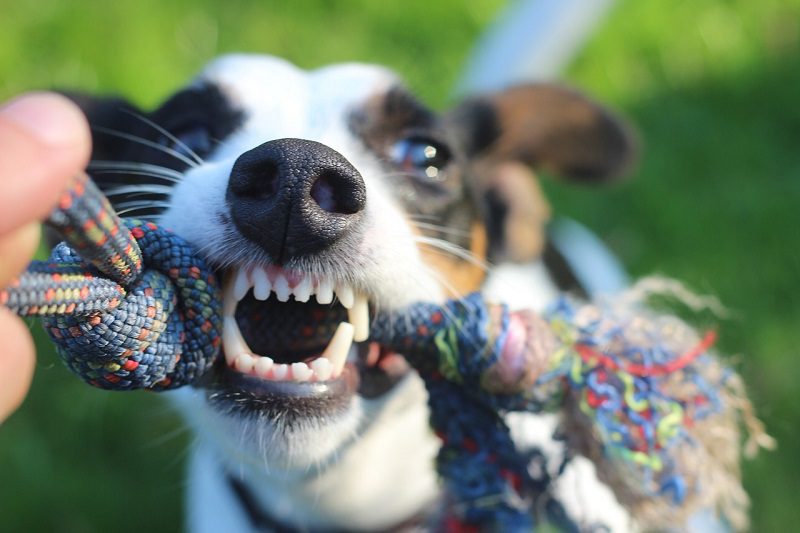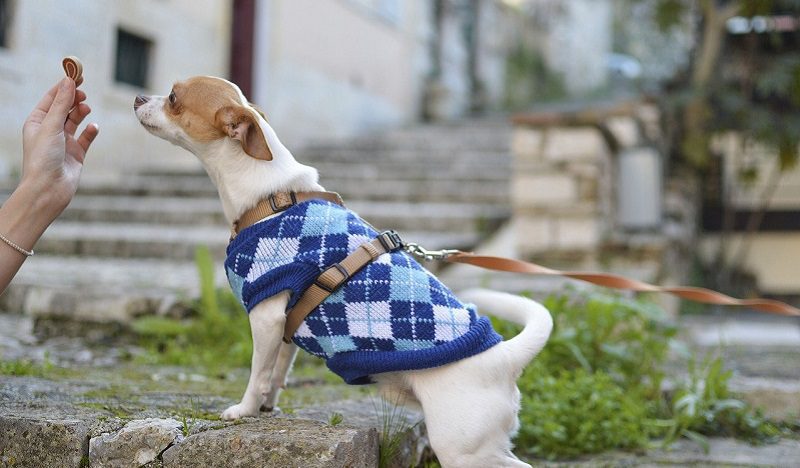You can teach your dog new tricks!
Now is a great time to head outdoors to teach your dog some new tricks or tackle some of those obedience niggles. “Dog owners will know that feeling all-too well, when your dog won’t come back to you in the park or chases off after something they shouldn’t”, said PDSA Vet Nurse, Nina Downing.
“It’s easy to get frustrated with pets when they don’t do as they’re told, but owners needn’t feel that they have to live with it.
Training can be started at any age, it’s a great way of developing a bond and trust between you both.”
She said: “Reward-based’ training is fun for your dog too and that is the key to success.”
PDSA’s ten golden training rules:
Something worth having!
Make sure that the reward you’re offering is an attractive prospect for your dog: some would do anything for a small piece of a treat, others like praise or their favourite toy.
Timing is everything
It’s important that you reward your dog as they are exhibiting the good behaviour or within a maximum of a couple of seconds afterwards, otherwise it’s unlikely that they will connect the two.

Keep it short
Keep training sessions ‘little and often’ to maintain the fun of the exercise and to avoid you and your dog becoming frustrated.
One-by-One
Focus on teaching your dog one command at a time.
Clear commands
To avoid confusing your pet make sure commands and hand signals are simple and consistent. For example, don’t use several words for ‘sit’ or different hand signals for the one action.
Practice, practice, practice!
The key to your dog understanding a new command is repetition.
Your dog might not understand immediately, but with the right practice and patience your dog will understand in time.
Ignore mistakes
Some dogs will make mistakes, it’s not their fault and it doesn’t mean they can’t learn the task, just that it will take more practice.
So ignore the mistakes and reward them whenever they do get it right.

Never use punishment
Some owners think dogs respond to shouting, intimidation or, worse, smacking them.
All they will learn this way is fear, it can impact on the pet owner trust and bond.
If they perform the task, it won’t be because they want to, but instead, afraid of how their human may react if they don’t.
Get everyone on board
Everyone who comes into contact with your pet should be following your example by praising correct behaviour, using the same commands and ignoring mistakes.
A note on nibbles
Dog and cat obesity is a big problem, so to avoid creating a well-behaved but overweight pet try using healthy foods as rewards.
Remember to reduce their main feed in accordance with how many treats they have had.
Picture: Pixabay/ZigmarsBerzins
